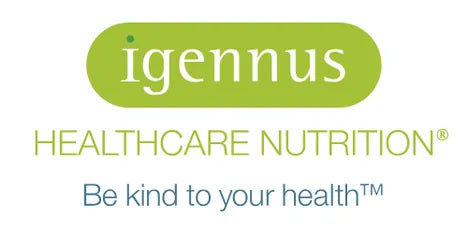It’s no surprise that your diet may be overlooked when mood is low, as feeling this way often occurs alongside busy schedules and stressful lifestyles. Poor dietary choices at this time, however, can significantly impact mood, exacerbating the problem both short and long term.
Mood health can range from diagnosed health conditions, such as depression and bipolar disorder, to other isolated symptoms such as anxiety, irritability, low mood and sleep issues. Depression is particularly common, and describes a wide range of mood disorders that create psychological distress. Depression may be of the reactive type, i.e. a result of external circumstances such as a relationship breakdown, for which talking therapies may be beneficial, or diagnosed clinical depression, which may have no clear cause and may involve physiological imbalances in the brain. Fortunately, nutrition can be used as a tool to support these imbalances.

Mood-enhancing properties of fish
The connection between nutritional deficiencies and brain function is generally understood, yet the connection between nutrition and mood health is more complex. Although no single super-food exists to lift mood, the clearest association between mood disorders and diet is with fish consumption. Countries such as Japan and Iceland have very low levels of depression and bipolar disorder, and very high fish consumption, whereas countries such as Germany and New Zealand, with much lower fish consumption, are on the other end of the scale. (1, 2)
Fish is unique as it contains by far the richest source of the long-chain omega-3 fatty acids eicosapentaenoic acid (EPA) and docosahexaenoic acid (DHA). Studies looking at omega-3 fatty acid levels in red blood cells have found that levels are significantly lower in those experiencing depression. (3) In addition to the high omega-3 content of fish, they also provide a good source of important vitamins and minerals, some of which are required for neurotransmitter synthesis, the chemical messengers in the brain. Fish is also high in protein which is needed to produce serotonin and dopamine required to regulate sleep, memory, mood, feeling of reward and behaviour.
Getting the ideal balance of omega fats
Dietary fat consumption often has a bad reputation, with low-fat diets still very commonly followed. However, fat is crucial for the brain, with the balance of fats just as important. Omega-3 EPA is required to produce anti-inflammatory signalling molecules in the body, whilst omega-6 arachidonic acid (AA) produces pro-inflammatory signalling molecules. Whilst inflammation is a normal biological response, if inflammation continues unnecessarily long term, it can lead to damage of body tissues and increase susceptibility to disease. This chronic low-grade inflammation, coupled with a high AA:EPA ratio is associated with depression. (4)
To balance consumption of omega-6 AA and omega-3 EPA, minimise intake of grain-fed meat high in AA and increase intake of EPA found in oily fish such as mackerel, salmon and herring. Whilst plant sources of omega-3 fats (including flaxseed and chia seeds) are great foods to include in the diet, they do not contain any sources of EPA. Whilst theoretically we should be able to convert the short-chain omega-3 content of plant foods to long-chain omega-3 EPA, this is a demanding process and supplementation with an algae oil is recommended alongside consumption of plant-based sources of omega-3s to boost levels.
Vegetable oils such as corn and sunflower oil can convert to omega-6 AA in the body, which may result in increased inflammation. Vegetable oils (which may be also heat treated, causing damaged fatty acids) are commonly added to processed foods including cakes and biscuits. It is therefore best to limit these foods where possible.
To practically obtain enough omega-3 EPA from the diet, aim to eat 1-2 portions of oily fish per week, ideally smaller fish which are naturally lower in contaminants such as methyl mercury, PCBs and dioxins. Oily fish, such as mackerel, contain much higher levels of EPA in comparison to white fish such as cod. Consider baking fish, as frying at higher temperatures damages the beneficial fatty acids. Canned fish also has much lower levels of important fatty acids, so buy fresh where possible.

Supplementing for an optimum omega-3 dose
If eating oily fish on a regular basis doesn’t appeal to you, consider taking a fish oil or algae oil supplement to provide an adequate dose of omega-3 EPA to support your mood.
Studies looking at the effect of fish oils on mood disorders have found that they vary considerably depending on the ratios of long-chain omega-3 fatty acids EPA and DHA. Meta analyses comparing many clinical trials carried out on fish oils have found that those containing concentrated EPA have a more beneficial effect on mood health compared to fish oils containing both EPA and DHA. (6) A dose of 1000mg of EPA on its own (without DHA) shows significant beneficial effects on depression. (7)
We recommend: Pharmepa RESTORE - provides a concentrated serving of 1000mg pure EPA per two small, easy-to-swallow capsules. Lemon flavour prevents reflux.
Or: Pure & Essential Vegan Omega-3 & Astaxanthin which uniquely provides an optimal balance of EPA alongside DHA from algae - the only plant-based source of EPA & DHA.
PROTEIN AND BRAIN CHEMICAL MESSENGERS
Neurotransmitters in the brain help to transmit information to cells and play a significant role in mood regulation, memory, behaviour and sleep quality. Neurotransmitters are synthesised from amino acids found in protein-rich foods. To keep your brain messengers working optimally, include plenty of organic and grass-fed meat, fish, dairy, eggs, pulses, nuts and seeds.

Refined carbohydrates disrupt mood
A diet high in refined carbohydrates is unhealthy for several reasons, and has been shown to negatively affect mood and concentration. (5) Refined carbohydrates, including sugar and processed foods, release glucose quickly into the blood leading to highs and lows in energy levels and an increase in inflammation. Sudden peaks in blood sugar delivered to the brain can also directly influence mood.
In addition to the negative effects of blood sugar dysregulation, refined carbohydrates are also low in nutrients and deplete the body’s stores of B-vitamins to process them. Carbohydrates found in vegetables, pulses and wholegrain foods, including oats, are better choices as they are more slowly absorbed and are nutrient dense. Choosing other such foods which have a low glycaemic index (GI) ensures that blood glucose levels stay more constant and better support a stable mood.
Top 5 vitamins and minerals for brain health
Vitamins and minerals are required for infinite processes in the brain including the metabolism of fats and synthesis of neurotransmitters. Deficiencies of some of these vitamins and minerals may lead to symptoms of insomnia, mood swings, nervousness, depression and confusion.
Key for maintaining brain function is the methylation cycle - a detoxification process in the body, important for the production of neurotransmitters. A dysfunction of this cycle can result in excess homocysteine, a harmful by-product. Whilst homocysteine is usually converted into essential proteins involved in processes such as sleep and mood regulation, an accumulation of homocysteine can disrupt neurotransmitter function and is a risk factor for dementia and depression. To support proper homocysteine recycling and improve serotonin production, vitamins B6, B12 and folate (vitamin B9) are essential.
In order to support the methylation cycle and other processes in the body, here is a list of some of the richest food sources of the most important vitamins and minerals for mood health:
Vitamin D – sunlight is the main source. Small amounts are found in fish, oysters, eggs and fortified products
Magnesium – dark green leafy vegetables (spinach, kale), nuts, seeds, fish, beans, lentils, whole grains, avocados
B-vitamins – seeds, nuts, fish, yeast extract spread (Marmite), herbs and spices, brown rice and wheat bran
Zinc – oysters, wheat germ, liver, beef, pumpkin seeds, watermelon seeds, dark chocolate
Selenium – Brazil nuts, shellfish, liver, fish, sunflower seeds, oat bran
Include these foods on a regular basis, ensuring animal foods are grass-fed where possible. Meals may include fish with vegetables, lentil curry with brown rice, spinach omelette, nuts and seeds for snacks, and dark chocolate for the high zinc content.
Shop by ‘mood support’ to see our nutritionists' curated selection of supplements to support mood health.








